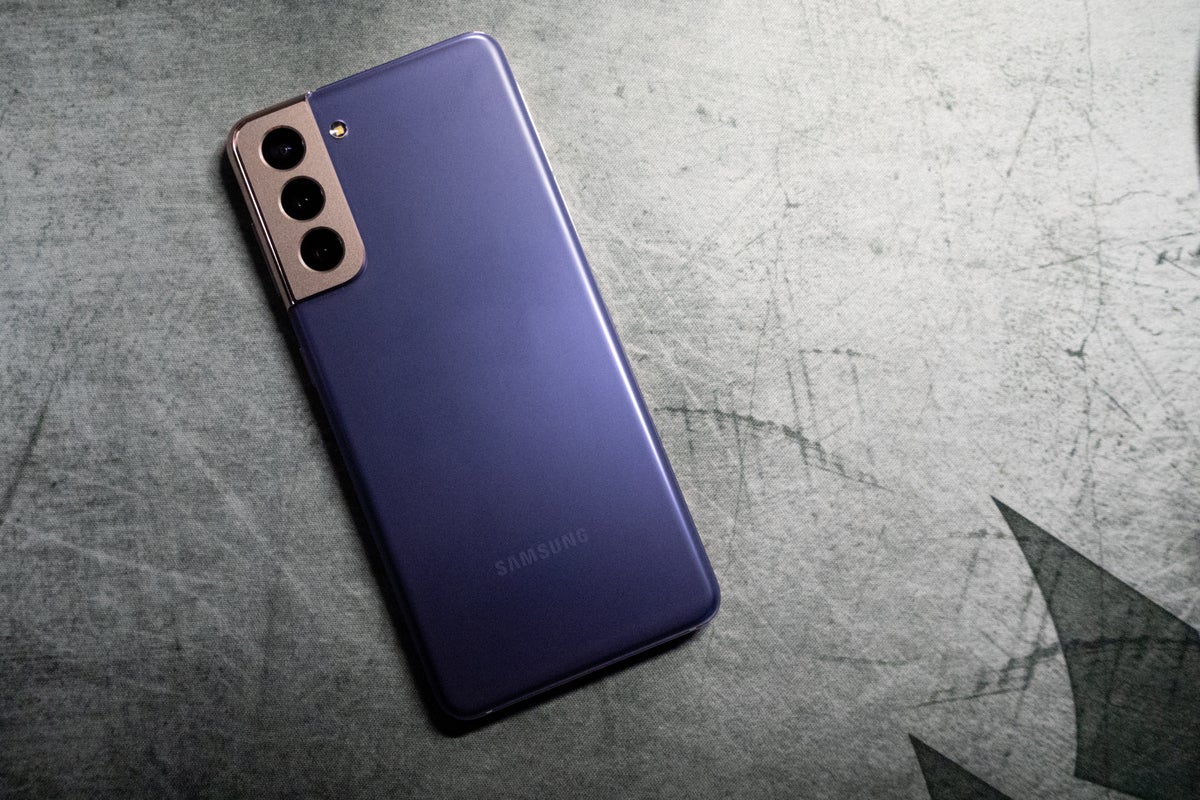The results surprised us.

Michael Simon/IDG
Today’s Best Tech Deals
Picked by PCWorld’s Editors
Top Deals On Great Products
Picked by Techconnect’s Editors
Samsung’s Exynos processors have never quite been able to live up to their Snapdragon counterparts. Whether we’re talking about the 990 in the S20 or the 850 in the A21s, Qualcomm’s chips have always enjoyed a comfortable lead when it comes to power and performance.
That might be changing with the newest Exynos 2100 processor that powers the Galaxy S21 phones around the world. Samsung made a bit of a splash during the launch of the chip, declaring “Exynos is back” with a processor that “sets a new standard for premium mobile experiences.”
More coverage
Galaxy S21 lineup revealed
8 quirks about the Galaxy S21
The secret value of the Galaxy S21
Galaxy S21 vs. iPhone 12
Galaxy S21 review (TechAdvisor)
That’s a bold statement, and we were initially skeptical. While the 2100 is certainly an improvement over the previous Exynos flagship processor, bringing an integrated 5G modem, support for 144Hz displays, and a 5nm process with a Cortex-X1 CPU, we wondered if it would actually compete with the latest from Qualcomm, the Snapdragon 888.
First let’s look at how the Exynos 2100 in the S21 compares to the Exynos in the S20, as tested by our sister site in the UK, Tech Advisor.
Geekbench 5
Multi-core
S20: 2299
S21: 3263
That’s a nice leap in year-over-year performance and shows that Samsung’s claims aren’t just lip service. The PCMark Work 2.0 score saw very nice gains as well, with an impressive score of 14,732 versus less than 11,000 with the 990. That’s a huge performance leap that’s bigger than the Snapdragon’s year-on-year gains.
 Michael Simon/IDG
Michael Simon/IDGThe Galaxy S21 is powered by the latest Qualcomm flagship processor, the Snapdragon 888.
But comparing the Exynos 2100 against the 990 is hardly an indication that it can compete with the 888. So without further ado, here are the numbers you’ve been waiting for:
Geekbench 5
Single-core
S21 Snapdragon 888: 1,076
S21 Exynos 2100: 1,070
Multi-core
S21 Snapdragon 888: 3,223
S21 Exynos 2100: 3,263
PCMark Work 2.0
S21 Snapdragon 888: 13,070
S21 Exynos 2100: 14,732
Now we’re getting somewhere. Not only are the Exynos 2100’s Geekbench Multi-core and Work 2.0 results vast improvements over those of its predecessor, but it also bests the Snapdragon 888 in a head-to-head matchup. And that’s with less RAM than the S20 (8GB vs 12GB).
Graphics are impressive as well. While the Exynos 2100 is still using a Mali GPU, the results are pretty much in step with the Snapdragon 888 using 3DMark’s cross-platform Wildlife benchmark.
3D Mark Wildlife
S21 Snapdragon 888: 5,733
S21 Exynos 2100: 5,852
The Snapdragon 888 performs a bit better with more graphics-intensive tasks, as seen by the frame-rate results from GFXBench’s tests:
GFXbench Aztec Ruins Vulkan
S21 Snapdragon 888 (High): 35 fps
S21 Snapdragon 888 (Normal): 55 fps
S21 Exynos 2100 (High): 26 fps
S21 Exynos 2100 (Normal): 35 fps
The results were much closer with the Manhattan tests, with the Exynos 2100 edging out the Snapdragon 888 with 100-plus fps. However you slice it, those are better than good-enough numbers, positioning the Exynos processor as a competitor to the latest flagship Snapdragon. It even closes the gap some with Apple’s A14 Bionic processor (though both chips still have a ways to go to catch up).
The Exynos 2100 might still lag a bit when it comes to battery life. While we’ll go more in-depth with our formal reviews, battery life benchmarks were quite a bit different when running the Work 2.0 test with the screen set to 200 nits and adaptive refresh turned on. On the Snapdragon 888 model, I got nearly 10 hours of battery life, while the Exynos 2100 counterpart barely hit 8 hours. While both of those numbers will get you through most days, it appears as though Samsung has a bit more work to do with power efficiency.
Even so, the Exynos processor in the Galaxy S21 is an impressive entry into a world dominated by Qualcomm and its Snapdragon processors. If the Exynos 2100 processor wasn’t ready for the demanding U.S. audience, the numbers we’re seeing suggest the Exynos 2200 very well could be, especially if AMD’s Radeon graphics power the next GPU as expected.
Of course, benchmarks don’t tell the whole story, but Samsung has made a serious and impressive leap in CPU performance with its latest Exynos processor. If the S21 is any indication, Snapdragon Galaxy phones might finally be ready for their close-up.
Update 12:00PM ET: Added a link to the Galaxy S21 review on our sister site, TechAdvisor.
Note: When you purchase something after clicking links in our articles, we may earn a small commission. Read our affiliate link policy for more details.
Michael Simon covers all things mobile for PCWorld and Macworld. You can usually find him with his nose buried in a screen. The best way to yell at him is on Twitter.

